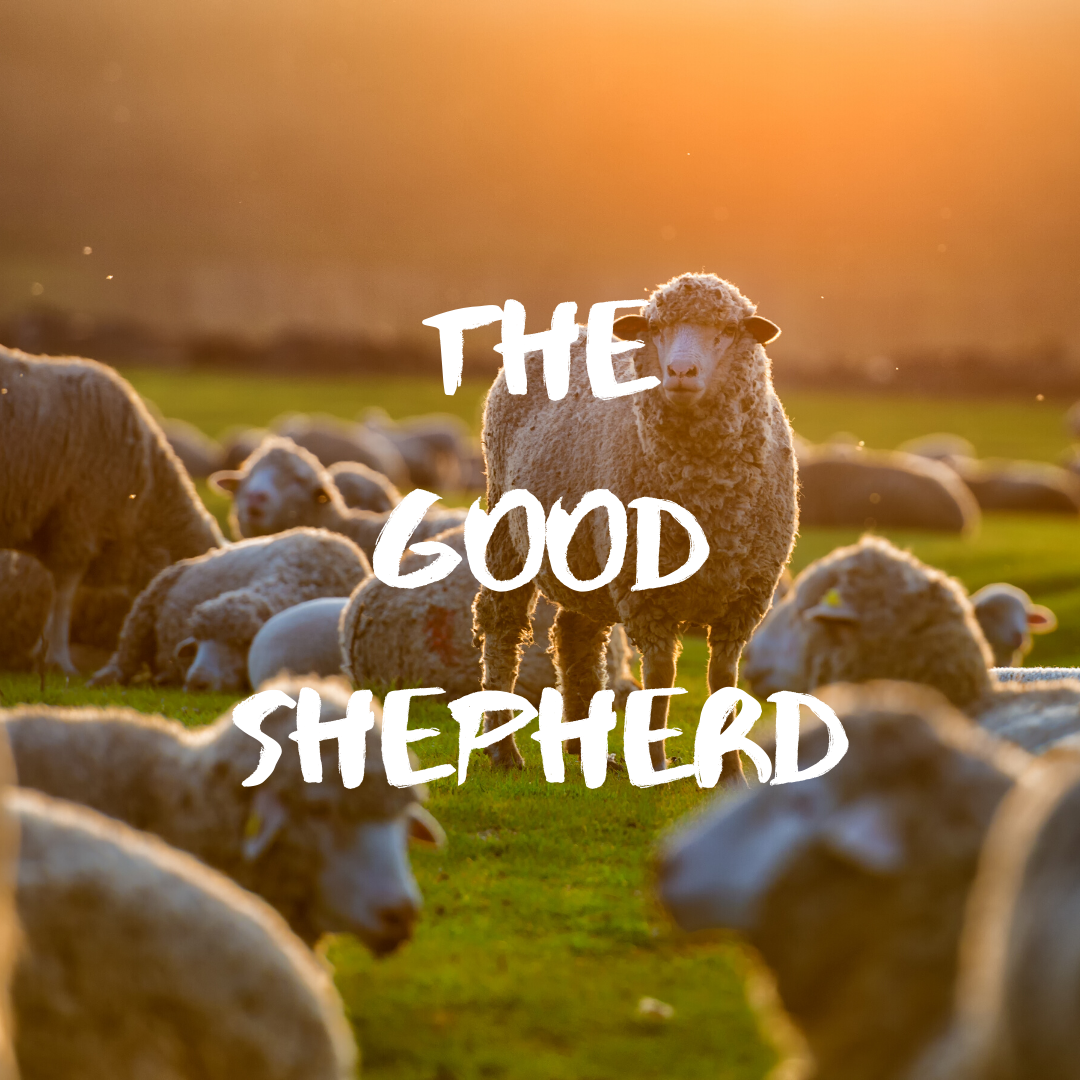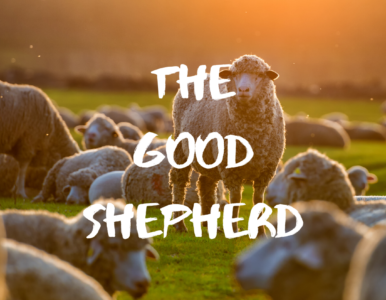The fourth I Am Statement might be my favorite, but only because it’s an excuse to break out lots of stories about growing up raising sheep. There’s something special to be said of our attachment to our home and as much as I get made fun of, I’ll forever brag about being a Nebraska farm girl at heart. One advantage it gives me, that I love, is that the metaphors Jesus uses for shepherding sheep or agriculture are relate-able to me and makes me feel even more connected to the Biblical narrative.
There’s nothing overly glorious about scooping up sheep manure, rounding sheep up when they get out of the pen, or shoving their head back through the fence when it gets stuck because they tried too hard to eat grass. God never has picked the most jaw-dropping ways to accomplish His eternal plans though.
He picked people like David, the least likely. Young, small, expected to achieve nothing, yet he turned from a shepherd to a King (1 Samuel 16:8-13). Not all was sunshine and roses for David after he was anointed, he also had to learn what it meant to follow God, his shepherd. I imagine he drew on his own upbringing as he walked through difficulties, he knew when he was writing Psalm 23 what it means to follow a shepherd, to be cared for, to rest in His guidance, and the love and protection shown to His sheep.
Just as with David, Jewish leaders certainly weren’t expecting someone like Jesus to be important either. Born among the sheep with no fireworks in the sky – just a bright star and shepherds called by an angel surrounded this baby anointed King. Now He’s in the middle of His ministry and he makes his fourth claim: I am the Good Shepherd.

I am the good shepherd. The good shepherd lays down his life for the sheep
John 10:11
12 The hired hand is not the shepherd and does not own the sheep. So when he sees the wolf coming, he abandons the sheep and runs away. Then the wolf attacks the flock and scatters it. 13 The man runs away because he is a hired hand and cares nothing for the sheep. 14 “I am the good shepherd; I know my sheep and my sheep know me— 15 just as the Father knows me and I know the Father—and I lay down my life for the sheep.
John 10:12-15
God cares for us deeply, He sent His son here to be among us, to pursue us, to teach us, to shepherd us, and ultimately die on the cross as the ultimate sacrificial lamb. I suppose that’s what surprised people, they were expecting the wolf. The one who’d be aggressive, make a political attack, but instead He’s saying He’s a shepherd protecting his sheep from the wolves and even sacrificing His life for them.
It does beg to be asked, how can the one reference as the Lamb of God (John 1:29) also be the Good Shepherd? This same sacrificial language in John can also be found in Revelation 7:13-17.
13 Then one of the elders asked me, “These in white robes—who are they, and where did they come from?” 14 I answered, “Sir, you know.” And he said, “These are they who have come out of the great tribulation; they have washed their robes and made them white in the blood of the Lamb. 15 Therefore,
“they are before the throne of God
and serve him day and night in his temple;
and he who sits on the throne
will shelter them with his presence.
16 ‘Never again will they hunger;
never again will they thirst.
The sun will not beat down on them,
nor any scorching heat.
17 For the Lamb at the center of the throne
will be their shepherd;
‘he will lead them to springs of living water.’
‘And God will wipe away every tear from their eyes.’
He is both // and. Sometimes I get caught up in wanting a perfectly clean answer, but the metaphors and imagery of the Bible are more complex then that. Jesus used references to who He was in ways that those He was speaking to would understand. Shepherding, agriculture, drawing on Old Testament language. The vision John had in Revelation is drawing on imagery mixed with who God is. Jesus is Lamb of God because He was the final Passover Lamb (John 19:31-37; Exodus 12) and He is a Shepherd because this metaphor reflects His relationship, love, guidance, and protection of us.


